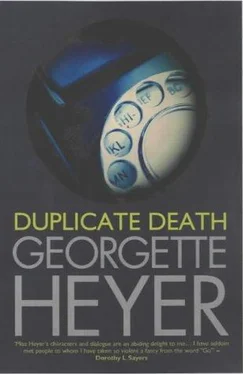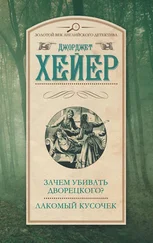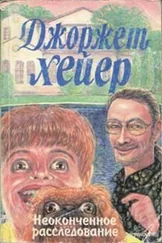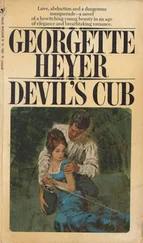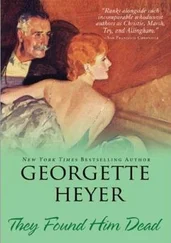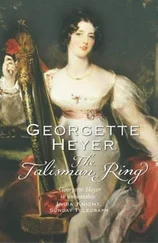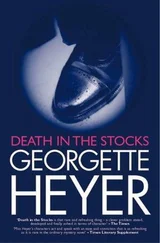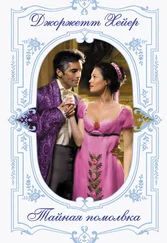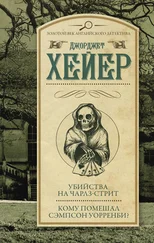Джорджетт Хейер - Duplicate Death
Здесь есть возможность читать онлайн «Джорджетт Хейер - Duplicate Death» весь текст электронной книги совершенно бесплатно (целиком полную версию без сокращений). В некоторых случаях можно слушать аудио, скачать через торрент в формате fb2 и присутствует краткое содержание. Год выпуска: 1951, Жанр: Детектив, на английском языке. Описание произведения, (предисловие) а так же отзывы посетителей доступны на портале библиотеки ЛибКат.
- Название:Duplicate Death
- Автор:
- Жанр:
- Год:1951
- ISBN:нет данных
- Рейтинг книги:3 / 5. Голосов: 1
-
Избранное:Добавить в избранное
- Отзывы:
-
Ваша оценка:
- 60
- 1
- 2
- 3
- 4
- 5
Duplicate Death: краткое содержание, описание и аннотация
Предлагаем к чтению аннотацию, описание, краткое содержание или предисловие (зависит от того, что написал сам автор книги «Duplicate Death»). Если вы не нашли необходимую информацию о книге — напишите в комментариях, мы постараемся отыскать её.
Duplicate Death — читать онлайн бесплатно полную книгу (весь текст) целиком
Ниже представлен текст книги, разбитый по страницам. Система сохранения места последней прочитанной страницы, позволяет с удобством читать онлайн бесплатно книгу «Duplicate Death», без необходимости каждый раз заново искать на чём Вы остановились. Поставьте закладку, и сможете в любой момент перейти на страницу, на которой закончили чтение.
Интервал:
Закладка:
The flat was not extensive, consisting merely of two bedrooms, a dining-room, a sitting-room, and what were known as "the usual offices'. It was furnished in an expensive but undistinguished style, its amenities including mirrored panels in the bedroom, and the tiny hall; a plate-glass dining-table; numerous deep chairs covered in oxhide, and lavishly provided with velvet cushions; a glass-fronted bookcase, containing sets of standard authors in tooled calf bindings, which bore all the appearance of having been bought to form part of the room's decoration; an opulent radio-cabinet; several pictures in slightly exotic taste; and such repellent adjuncts as a standard lamp, upheld by a naked bronze female, an alabaster ashtray, surmounted by a silver aeroplane, and a cocktail-cabinet, furnished with an interior light, a bewildering array of bottles, and a complete set of glasses, all of which were embellished with erotic designs.
"In fact," said Hemingway, "the sort of decor that puts very funny ideas into one's head."
A cursory inspection of the flat yielded no clue to Seaton-Carew's profession. It was strangely impersonal, nor did a rapid survey of his pass-sheets, discovered in a drawer of the desk, provide Hemingway with an explanation of his obvious wealth. His investments seemed to be few and orthodox, but on the credit side were numerous sums briefly described as Cash.
"Up to no good," said the cynical Hemingway. "Or perhaps he was only bilking the Inland Revenue," he added charitably. "This place tells us nothing at all, Sandy."
The Inspector, who had gazed with an affronted eye upon the pictures adorning the walls of Mr. Seaton-Carew's bedroom, and who had been noticeably affected by the sybaritic aspect of his bathroom, replied austerely that it told him a great deal.
"That's only prejudice," said Hemingway. "The trouble with you is that you're not broadminded. Ever noticed that all pansies have exactly the same kind of manservant? Funny thing: you can spot 'em at a glance! We'll go and have a nice heart to heart with this specimen!"
But it was soon made manifest that Mr. Francis Caister had not been admitted into his master's confidence. Smoothing his thick, curly locks with one unquiet hand, he said that he had been in Seaton-Carew's employment for eighteen months, and that it had been a very pleasant situation, Mr. Seaton-Carew being a gentleman as was often out to meals. He did not think that his master had been in business. If he might, he would describe him as a gentleman of leisure. Questioned, he was a little vague on the subject of Seaton-Carew's visitors: he had had so many. He recalled Mr. Butterwick, however, and said, with a genteel cough, that that was a young gentleman as took things to heart, as one might say. Quite hysterical sometimes, he had been, particularly if he found another young gentleman, or, as it might be, a lady visiting Mr. Seaton-Carew.
"Did Mr. Seaton-Carew entertain many ladies?" asked Hemingway.
"Well," replied Caister coyly, "not what one would properly term ladies. But," he added, with a touch of vicarious pride, "he used to visit in very nice houses."
"Had he any relatives?"
Mr. Caister was unable to answer this: he had never seen any; nor could he oblige the Chief Inspector with the name of Seaton-Carew's solicitor. A search through the desk in the sitting-room yielded little result: Mr. Seaton-Carew had apparently made a habit of destroying his correspondence, nor did he keep an addressbook. A cheque-book, however, furnished Hemingway with the name and address of his Bank. Leaving Inspector Grant to visit the Manager of the Branch patronised by Seaton-Carew, Hemingway went off to ring up Mr. Timothy Harte, at his chambers in Dr Johnson's Buildings. Mr. Harte, not being engaged in Court that morning, most obligingly said that he would be happy to entertain an old acquaintance there and then, but suggested (since he shared a small room with another budding barrister) that the rendezvous should be at his home address, in Paper Buildings. Thither the Chief Inspector wended his way.
He was admitted to Timothy's chambers by a middle aged man, who had Old Soldier written clearly all over him, and ushered into a comfortable room overlooking the garden, which smelt of tobacco and leather, and was lined with bookshelves. Most of these carried ranks of depressing Law Reports, and other legal tomes, some of which, having been acquired at second or third hand, had a slightly mildewed appearance. An aged Persian rug covered most of the floor, and a large knee-hole desk stood in the window. Young Mr. Harte, in the black coat and striped trousers of his calling, was seated at this, smoking a pipe, and glancing through a set of papers, modestly priced on the covering sheet at 2 guar. He threw these aside when Hemingway came into the room, and got up. "Come in, Chief Inspector! Welcome to my humble abode!" he said. "Chuck those things off that chair, and sit down! Sorry about the general muddle: that's the way I like it!"
"Well, I'm bound to say I like it better than the last set of gentleman's apartments I was in, sir!" responded Hemingway, shaking hands.
"You do? Whose were they?"
"Mr. Seaton-Carew's."
"Fancy that now!" said Timothy. "I should have thought he would have done himself very artily."
"He did," said Hemingway, removing The Times, a paperbacked novel, a box of matches, two bundles of papers tied up with red tape, and a black cat from a deep chair, and seating himself in it. "Quite upset Inspector Grant. But then, he's a Scot! I'm more broadminded myself. No, thanks, sir, if it's all the same to you, I'll light my pipe. I thought I'd just look in to have a crack with you about old times."
"Having the morning on your hands," agreed Timothy. "Come off it! What am I? Chief Suspect, or Information Bureau?"
"Yes," said Hemingway, "you always were about as sharp as a bagful of monkeys, sir, weren't you? I daresay it'll get you into trouble one of these days. I do want some information, but I'd like to know what you've been up to since I saw you last."
"School - War - Cambridge - Bar," replied Timothy succinctly.
"I'm glad to see you came through the War safe and sound, anyway. Where were you?"
"Oh, all over the place!"
"I'll bet you were. Don't tell me you weren't in that Commando gang, because I shouldn't believe you! Right down your street that must have been!"
Timothy laughed. "I did end up with them," he admitted.
"I knew it! In fact, if I'd found a nasty-looking knife stuck into Mr. Seaton-Carew I'd have arrested you on the spot."
"Ah, I was too clever for you, wasn't I? Beer, or whisky?"
"I'll take a glass of beer, thank you, sir. Now, joking apart, you could help me a bit on this case, if you wanted to. I don't mind telling you that I'm all at sea. Very unfamiliar decor. What I want is some kind of an angle on a few of the dramatis personae, so to speak. Well, here's your very good health, sir!"
Timothy returned the toast, and sat down on the other side of the fireplace. "I don't promise to answer you, but what do you want to know?"
"I want first to know what sort of a man this. Seaton-Carew was, and what he did for a living."
"Search me!" replied Timothy. "I've often wondered. I thought the breed was dead. In fact, how anyone can live in these piping times as what used to be known as a gentleman of leisure has me beat. No visible means of support. Lives at a good address, dressed well, drove a high-powered car, generally to be seen at first-nights, Ascot, the Opera, the Ballet, and at quite a number of slightly surprising houses. Women were inclined to fall for him; men very rarely. That," added Timothy, "is not to be understood to include what we will politely term The Boy Friends. De mortuis nil nisi bonum, Melchizedek!"
The cat, which had sprung on to his knee, arched its back under his caressing, turned round twice, and settled down, purring loudly.
Читать дальшеИнтервал:
Закладка:
Похожие книги на «Duplicate Death»
Представляем Вашему вниманию похожие книги на «Duplicate Death» списком для выбора. Мы отобрали схожую по названию и смыслу литературу в надежде предоставить читателям больше вариантов отыскать новые, интересные, ещё непрочитанные произведения.
Обсуждение, отзывы о книге «Duplicate Death» и просто собственные мнения читателей. Оставьте ваши комментарии, напишите, что Вы думаете о произведении, его смысле или главных героях. Укажите что конкретно понравилось, а что нет, и почему Вы так считаете.
